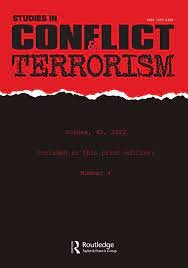Reports and articles

Crime and communities: life under criminal group control
This paper argues that we should not see ‘political’ and ‘criminal’ groups as separate categories. Instead, we should envision a spectrum of motives and practices across all armed groups, regardless of how they are labelled.

Understanding agency in civilian-armed group interactions
This joint paper with ODI explores what we know (and what we don’t) about how ordinary people engage with armed groups.

Taliban case study - from words to deeds: ANSA practice and interpretation of IHL and human rights norms
Part of a larger research programme hosted by the Geneva Graduate Institute, this study examines the Taliban insurgency’s practice and attitudes toward IHL rules and human rights norms.

Rethinking armed group control
Prevailing understandings of control – which focus on territorial dividing lines and acts of violence – are incomplete. Our paper argues that armed group control should instead be broken down according to how armed groups seek to influence populations.

Beyond greed: why armed groups tax
Based on a review of armed group taxation practices, this journal article argues that armed group motives go beyond revenue. It explores explanations related to ideology, legitimacy, institution building, control of populations, and the performance of public authority.

Beyond greed: why armed groups tax
Surveying the existing literature, this ICTD Working Paper argues that a deeper understanding of armed group taxation, the motivations behind it, and the implications it has for an armed group’s relationship with civilian and diaspora populations, as well as the broader international community.

Taliban narratives on Al Qaeda
Much has been written about the Taliban and Al Qaeda since 2001, but there is little consensus. Based on over 100 interviews with insurgent commanders and others, this report examines the Taliban’s strategic calculus for maintaining ties to Al Qaeda.

MNLA Mali case study - From words to deeds: ANSA practice and interpretation of IHL and human rights norms
Part of a larger research programme hosted by the Geneva Graduate Institute, this study examines MNLA practice and attitudes toward IHL rules and human rights norms.

Regulating irregular actors: can due diligence checks mitigate the risks of working with non-state and substate forces?
Western states have frequently worked with non-state armed groups to confront security threats, as part of global counter-terrorism operations or as de facto security providers in stabilisation contexts. But this often presents substantial risks or drawbacks. This joint paper, published with GPPi, considers how the US tried to mitigate these risks while working with militias and substate forces in Afghanistan, Syria and Iraq.

Rebel rule of law: Taliban courts in the West and North-west of Afghanistan
Seizing on widespread dissatisfaction with formal justice, Taliban courts quickly settled disputes that the state and customary institutions could not. It also enabled the Taliban to infiltrate new areas and enforce a strict set of rules on the population.
